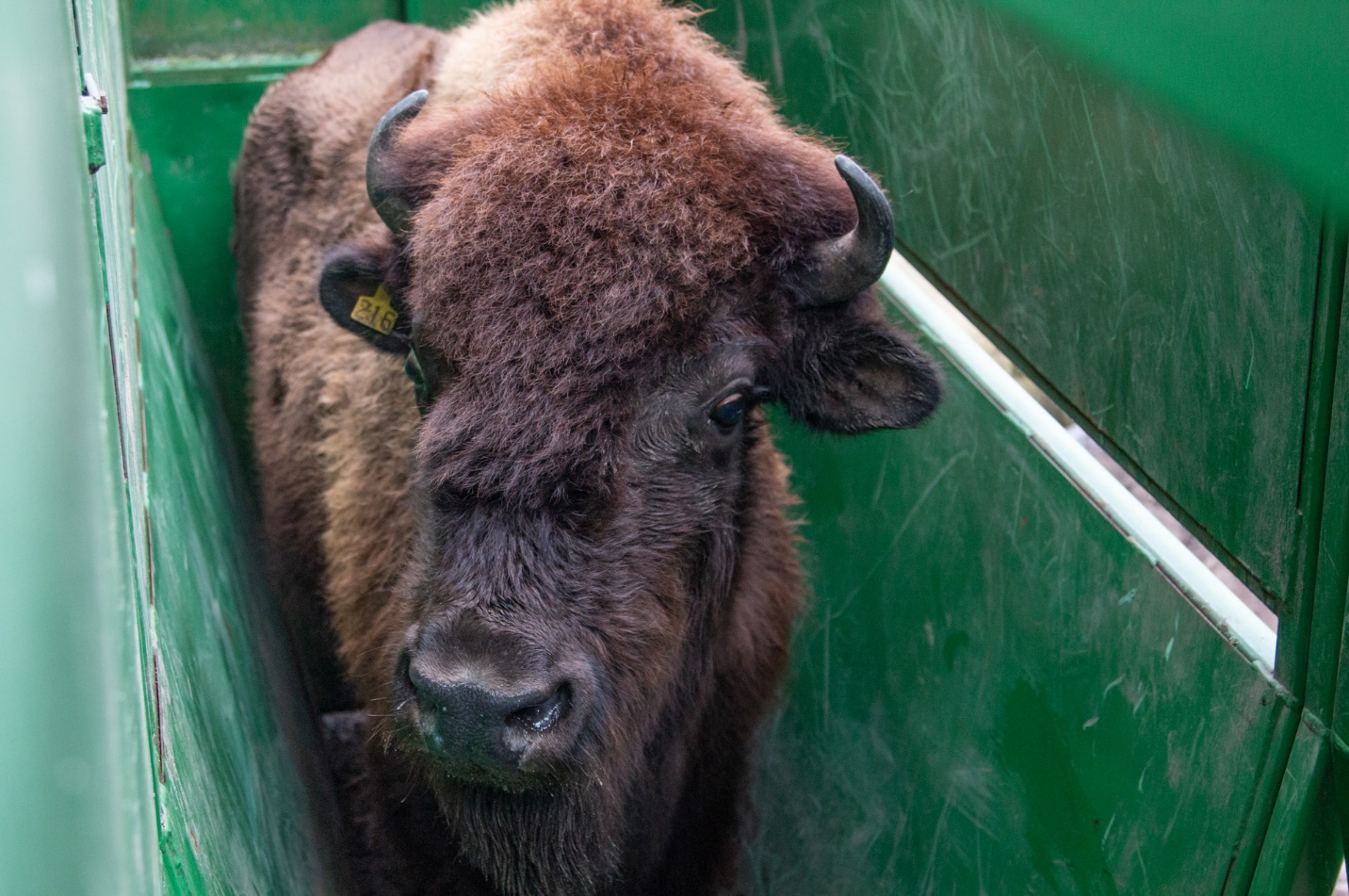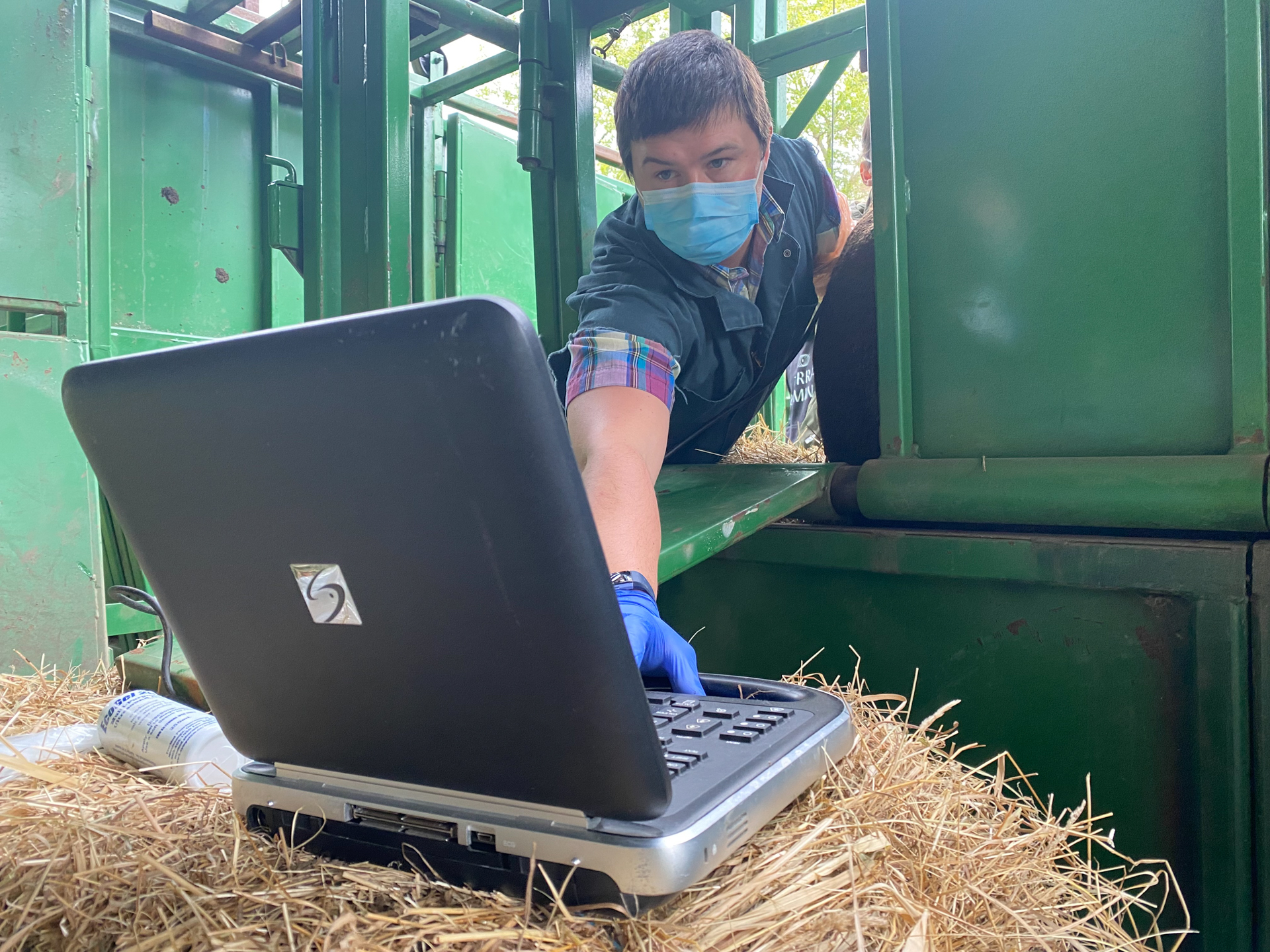
YOUR TORONTO ZOO ANNOUNCES PREGNANCY OF FOUR WOOD BISON THROUGH ASSISTED REPRODUCTIVE TECHNOLOGIES
“We are so excited to do our part to help ensure a better future for wood bison. This research is critical to genetic diversity that is necessary to conservation efforts for wild bison populations across northwestern Canada” explains Dr. Gabriela Mastromonaco, Director of Conservation Science. “The loss of a keystone species such as bison would significantly change the landscape and alter the ecosystems that depend on them, which would ultimately threaten the community of species that they co-exist with”.
Your Toronto Zoo currently cares for a herd of 5 male and 18 female wood bison. From mid-September into December, the Zoo’s Reproductive Sciences team spent long days with our Wildlife Care team moving bison through our handling system to undergo artificial inseminations (AI) or embryo transfers (ET). Both AI and ET are extremely intricate processes. The survival of the previously frozen sperm and embryos are sensitive to the slightest changes in their environment and keeping them at the proper temperature is crucial. In an outdoor lab where tarps and a shed are the only shelter, and a small generator is the only source of power, there are many challenges our research team faces as they work with our female bison herd through the changing seasons.
Every day out with the bison was strictly scheduled and took immense teamwork to complete simultaneously with the trials being run on the bison in Saskatoon. Timing of each procedure was dependent on the bison’s ovulation cycles which were synchronized using hormone injections. This ensured artificial insemination could be timed for all females to a specific day. Every step in the process could have a large impact on the success of the bison’s pregnancies so each task is done with the utmost care for both the research and the wellbeing of our bison – from freezing and thawing the sperm and embryos, to transferring them to the females, to training and caring for the herd.
During the first trial, bison were inseminated with either sexed or non-sexed (conventional) sperm by AI. Of those, pregnancy was detected in five individuals by ultrasound 28 days later. Unfortunately, one fetus did not appear to be viable. For the second trial, the bison who were not pregnant were given an embryo created either with sexed or conventional sperm. As we await the final pregnancy checks, Toronto Zoo is proud to be a part of this work and we are excited to support the long-term sustainability of this iconic native species. While we remain cautiously optimistic for healthy bison calves come the spring, we will continue to monitor the bison females closely over the winter as their pregnancies progress.
The Zoo has been involved in wood bison conservation since 1977, partnering with the University of Saskatchewan and Parks Canada in 2007 to undertake this reproductive research initiative. Historically, wood bison could be found across the boreal forests of northwestern Canada and Alaska; however, changes in habitat use have resulted in small, disconnected herds remaining in northern British Columbia and Alberta as well as southern Northwest Territories and Yukon. Although wood bison have been downlisted from "endangered" to "threatened" since 1988, on-going diseases, such as tuberculosis and brucellosis, in wild wood bison populations continue to threaten this species. Reproductive technologies, such as artificial insemination and in vitro fertilization, are important tools for improving the genetic management and connectivity of small populations. These techniques will help us overcome the challenges of managing the endemic disease threatening free-ranging wood bison herds, and ultimately allow us to restore genetically diverse disease-free herds in the wild. The Toronto Zoo houses one of a few reproductive physiology labs in North America that participate in biobanking wildlife species, the process of freezing living cells, such as sperm and embryos, for the purpose of preserving genetic diversity for the future.
IMPORTANT NOTE FOR OUR MEDIA CONTACTS: Please note that all media visiting the Zoo as of Monday October 25, 2021 will also be required to show proof of full vaccination in order to gain entry to the Zoo.
For full information and details on our new vaccination policy and implementation please visit our website at Toronto Zoo | TZ Vaccine Policy


-30-
Media Contact Information:
Amy Naylor
Media Relations Coordinator
[email protected]






For general information visit torontozoo.com
The Toronto Zoo’s mission is to connect people, animals and conservation science to fight extinction and our vision is a world where wildlife and wild spaces thrive.
An iconic tourist attraction and Conservation organization, the Toronto Zoo boasts a number of leading programs for helping wildlife and their natural habitats – from species reintroduction to reproductive research. A world-class educational centre for people of all ages, the Toronto Zoo is open every day including December 25 and attracts approximately 1.2 million guests each year.
Toronto Zoo is accredited by Canada's Accredited Zoos and Aquariums (CAZA) and the Association of Zoos and Aquariums (AZA). The Zoo has also achieved the Canadian Council on Animal Care (CCAC) Certificate of Good Animal Practice® and is inspected by the Ontario Ministry of Agriculture, Food and Rural Affairs (OMAFRA).
Toronto Zoo, 361A Old Finch Ave, Toronto ON, M1B 5K7
To unsubscribe, please send your request to [email protected].
View Toronto Zoo’s Privacy Statement